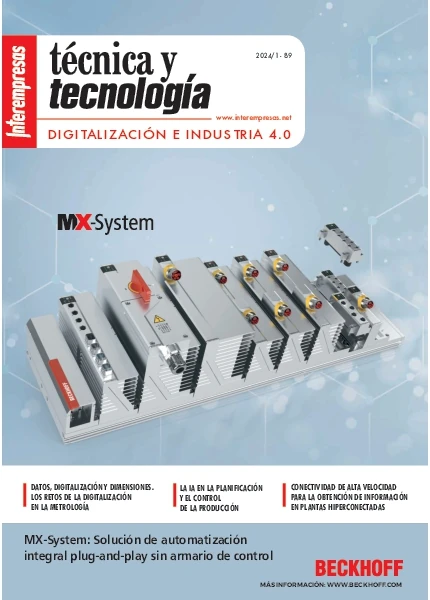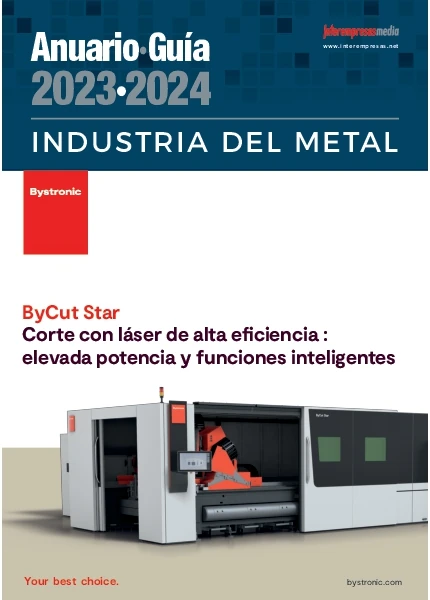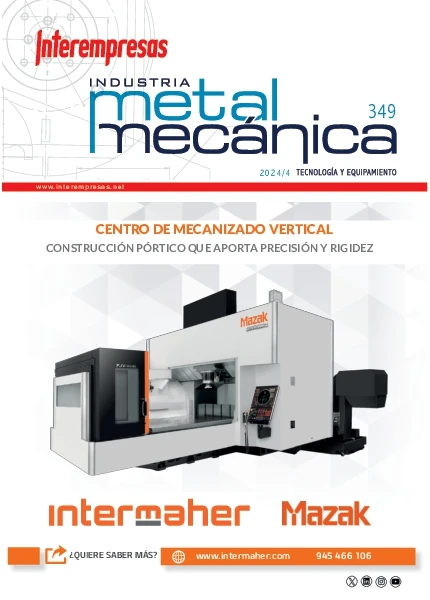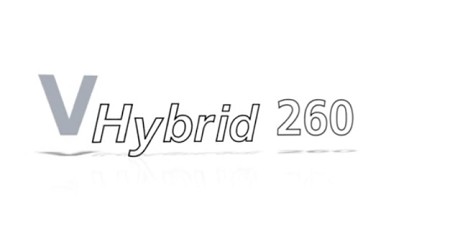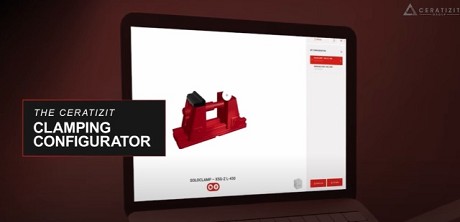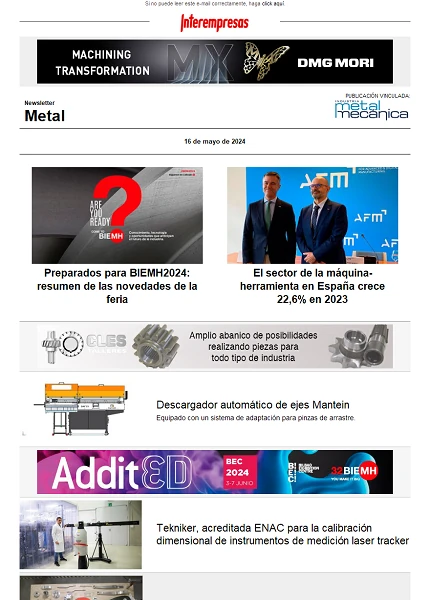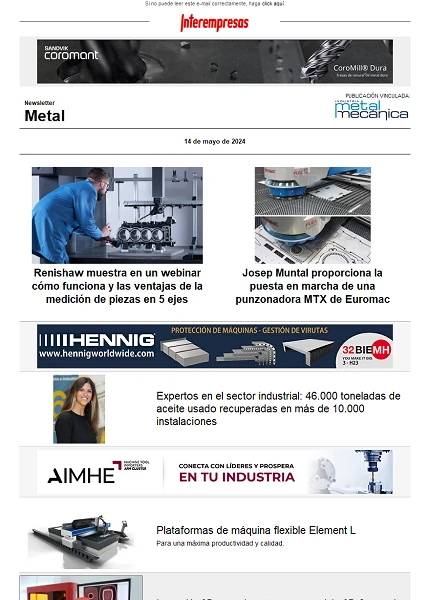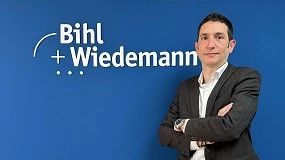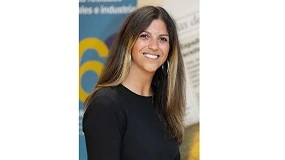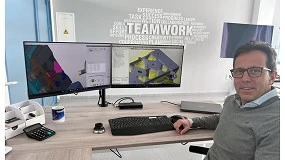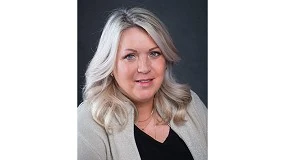The value of talent and cooperation, protagonists in the Valencia meetings
February 28, 2011
And that the meetings that will take place this 2011 play with the advantage of the good results of assistance from those carried out in 2010, in Seville, Vitoria, Barcelona and Madrid, which credited them as a unique forum that brings together small and medium-sized companies engaged in this important activity in the industrial sector of the metal.
Organized by Aspromec, Association of professionals for the competitiveness of the machining, this year the meetings of the machining incorporated into two new sponsoring companies - assistants and suppliers of the SMEs of the machining-, Zoller and Tebis, who join the already common Castrol IndustrialIntermaher, wnt Ibérica, Toolox and Interempresas medium collaborator. This Edition also counted with the collaboration of the Chamber of Commerce of Valencia, Aimme, the metalworking technology Institute, and the Valencian metallurgical Business Federation, Femeval.
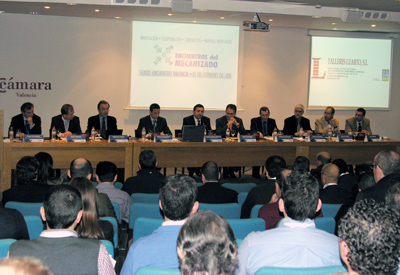
Precisely its President, Vicente Lafuente, was responsible for opening the event, thanking the Organization the choice of Valencia: "we are very pleased that Aspromec chose Valencia for the celebration of this event, which is a forum that has become an area of analysis and primary reflection to the development of relations between enterprises" "related to the sector of the machining and for better understanding of the realities and positions in the international market at the moment". In his speech, Lafuente stressed the importance of the network of subcontracting in the Spanish tooling "which is in a phase of maturity by what we think that measures aimed at the revitalization of the sector should be taken". And such measures continue to be the four pillars that focus meetings, that is, innovation, cooperation, contacts and the possible pursuit of new markets. "The companies in the metalworking sector we are aware that we must change and that this crisis will only those companies who are courageous and to make a firm commitment by the differentiation with respect to the other competing companies." An example is the possible acquisition of machinery and innovative products by industries who strive in the improvement and optimisation of processes, increasing productivity and profitability of the products manufactured seeking possible solutions to the problems posed to them by a globalized and highly competitive market. "The research, development and innovation are big words listed as a role model in enterprises to ensure the survival and improve the competitiveness", continued Lafuente. But he acknowledged that "the problems of the day to day make difficult to follow this option". The difficult economic situation, with falls of production in the metal sector have reached difficult levels, "the activity has broken down, and what is worse, are not visible in the horizon signs of recovery". The little market demand, default and the difficulty of access to finance "are factors that we all recognize that they are drowning companies and we are therefore obliged to allocate scarce resources that we have companies to survive"", reducing us somewhat the ability to think the key to future". For this reason, Femeval President claimed to help the authorities "with political daring to help them improve their business and invest in the future." "Why business organizations are making a bet strong face administrations so that they realize the importance of the industrial sector as an engine of dynamism of society". Lafuente claimed in addition more aid for r & d for SMEs "if we want companies that form the industrial fabric to be capable of transforming their ideas into jobs, wealth and continuity for the future".
"More than gestures"
Days after the meetings held in Paterna, Femeval calling to media to present the annual analysis than the employers on the constraints that affect the Valencian metal sector. The President was emphatic in stating that "we are witnessing a period of absolute deterioration in the economy of the business sector and job creation." Or we set up an emergency plan of emergency agreed to help companies, or the immediate future will be extremely worrying. "We must do it now, and nobody can exempt themselves from their responsibilities." This analysis of Femeval notes that credit is very far from flow under normal conditions to the business fabric, both the funding of current and new investment projects. In this regard, also indicated that regulations which the authorities intend to apply, to win the confidence of investors in the solvency of institutions, will further sharpen the drought of credit and business mortality, at least in the short term. The employers of the metal considers that the delay in payment is helping to turn to the business financial strangulation. The default is a luxury that companies cannot afford, as it prevents them reaching 4% of sales, and has become the direct cause of the dissolution of more than 16,200 companies since 2008.
On the other hand, Femeval adds that he is attending an exodus of skilled negative effect. First because it involves a process of human disinvestment that decreases the rate of the economy's potential growth Spanish in the medium term. And secondly, because public spending becomes inefficient and inequitable. The fabric production, and in particular the metal Valencia, to maintain its competitiveness, technological development and innovative potential, "needs a committed, flexible workforce and increasingly more qualified at all levels". The consequences of the difficult economic situation have an impact on the behaviour of the metalworking sector. As well, and despite signs of recovery had been saying since the beginning of 2010, has closed the last quarter with a decline of 3.6% of the productive activity, over the same period of 2009 when the growth rate was 10.2%. According to the Femeval situation report of the fourth quarter of 2010, employers of the Valencian metal closed the year with an average growth of their activities of 2%, thanks to the good behaviour of the first half. But in general terms, the year concludes with a return to the negative trend that has marked the past two years, only interrupted by demand stimulus policies pursued by Governments. Given the precarious situation of the political, economic and business context, Femeval insists that this crisis requires us to act. "Companies, to survive, need more than gestures at a critical juncture in our economy," had an impact Lafuente.
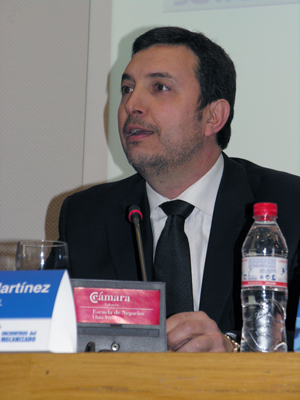
Human, essential equipment
Isn't that during talks not be speak items 'Star' that usually star in this forum, that is, innovation, internationalization or better corporate governance, as key to increase the competitiveness of companies, but if a value was spoken more than others wasno doubt, of the talent of the staff.
On the one hand was the protagonist of the presentation of Ramiro Bengochea, President of Aspromec and CEO of WNT Ibérica: 'People, the key to make competitive enterprises'. "The people are the most powerful tool in business," said Bengochea, who demonstrated in his speech how six key factors for the competitiveness of enterprises are based on having people with talent in organizations: capital, customersinnovation, cooperation, leadership and stability. They are the talented people that get capital - "capital has always sought talent to grow prosperous and profitable business" - and that can also understand the needs of clients with empathy. People also are which can bring innovative ideas to one company, "and not just innovation in r & d but also innovation in processes that we can incorporate into all levels of our Organization," said Bengochea. Also, those who can adapt to the new needs of the sector and restructure their businesses are their leaders, who with his talent "are able to change them and generate change around." "They are the driving forces of change." Another contributing factor to be more competitive is certainly the stability: "children grow up when they sleep." Companies thrive when there is peace of mind. "When there is war only are to live every day," and this stability provide employees committed to the principles of the companies. Again, this factor, people are the protagonists.
Also of talent, but in this case within a team, spoke Severino Mozo, Industrial Castrol. In a curious analogy with the Spanish team, winner of the last World Cup of football, that Castrol was sponsor, Mozo demonstrated how a strong component of individual talent cannot be him only to victory to a team: "The individual talent is not enough." "The culture of team, where his players work together, relate to and are able to get that individual talent to bring value to the team is more important". Without neglecting the value of the leader, "who has to bring stability in the bad times" and the vital role of the strategy, thanks to this culture of team "all members of the team must feel vital part of it""work together, interact and also be committed to the team".
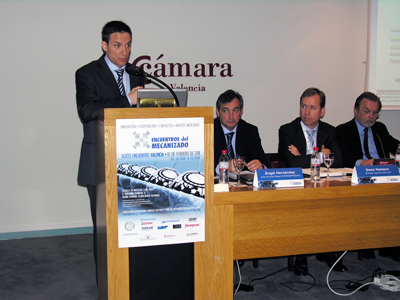
And as important to business organizations is having talent as fidelizarlo. Bengochea gave a few keys to retain talent in the company: "work without fear, free to deploy the full potential, consider people, give them appropriate training and recognize them." "A note, an SMS or an E-mail with 'thank you for your work' This comforting them, they feel important and made". A good example of this is that gave Vicente Sánchez, Manager of engineering, the Ford Spain engine plant, located in Almussafes (Valencia). Sánchez had, in one of the most interesting talks, how, for a change of structure of the plant, it had to stop for two years. Although typically in these cases is firing the entire staff, Ford Spain opted for 'recycle' to his workers, who stopped making engine parts to work with machinery manufacturers in the conversion of the machines. "On the one hand we save money, because at the end the exercise resulted in a significant saving, retuvimos the knowledge of our staff and finally, that a priori not sought but was finally, is that our operators acquired a knowledge of the machine as never before had had." During a period of almost two years became machinery manufacturers working with suppliers of different machines and acquired a knowledge that could not be as regular users. "It was a very positive experience". The degree of knowledge staff acquired during these two years also provided that own operatives are a posteriori, those dealing with the maintenance of their equipment. According to Vicente Sánchez: "We have to have machinery well prepared to make parts, engines, and this equipment must be capable of manufacturing always with quality every time you repeated the piece with a very narrow tolerances." We have highly skilled people and seek to make repairs as possible with people from home. "They are operations which often we are forced to make because we do not have local support of enterprises in the environment of the factory." (On this claim, Natxo Gómez Vadillo, of Aleacción and Group Vadillo advisers and a member of Aspromec, has written an article of opinion, available in this link).
And again, Sánchez put the professionalism of its team, which has led them to receive innovation awards for improvement initiatives proposed by their own employees in value: "our base, the pillar of our plant is people and people who has won awards of maturity in 2006"2007, 2008 and 2010, awards of wits and technical progress made by the staff of the line. "People which works because not only have two hands, has a brain to be used".
Achatando pyramids
The paper of Vicente Sánchez also introduced another interesting topic on the functioning of enterprises. The Manager of engineering of engines from Ford Spain told the details of the operation of this plant that the multinational has Spain since 1975. One of the things most striking is the Organization of the plant, which went from a pyramidal structure to another much closer. "We had a very old, traditional structure where there was much command intermediate to plant director", explained Vicente Sánchez. "All the people who are in the Middle makes to the message of the people of production, that really adds value, not flow up to the director of the plant and hence up." "We started achatando the command structure, and now between people who are on the computers in the line until the director of plant there is a step, maximum two, with which the communication is much more fluid".
The change in structure was also translated in the every day of the workshop. "In the year 75, when we started to manufacture, had a structure where people had specialist in setting tools, others of production, others in quality, maintenance, and each had its command structure and their areas of work and each carried out their duties." "We took note that quality itself is to be manufactured, not check". The change began to perform with the concentration of all the roles in operators in the transfer line to the current structure, with integrated teams of manufacturing. "Each line is managed as a small business in the whole of Ford, with its quality, costs and scrap." The engineer or command changes the role, leaves to give orders and becomes facilitator, a figure which operators call for help when they need it; If not, they handle the line and operate in a standalone mode. This is a very important change in philosophy and is to reverse the pyramid habitual have the boss in the Office and there call it of you. Now the boss has to go to the line and ask: 'Hey, how you can help?'. "It's a little culture of the client-supplier: for us the client is people who are on the line making pieces".
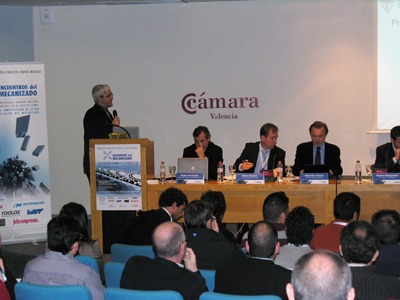
For its part, Paola Corbalán, responsible for purchases of Reyvarsur, in his paper ' the SME and the theory of the evolution. Management of change ', (see the full presentation at this link) also spoke of the need for transformation of traditional structures: "the pyramid chart is too rigid." "You have to create communication flows flattening the structure".
Roberto Hernando, CEO of Intermaher also spoke in his speech of management knowledge and promote to the maximum capacity and the intellect of the workers of the company, "a key to the companies that manage to succeed". And according to Hernando, this is achieved "through a structure in a decentralized way, allowing people to be autoorganice and have ability to do things and solve problems." Is looking for a management system that encourages each of the people of the company to provide the best of themselves, phrase that is much easier said that done, but at least if we know what the goal", surely we can do it".
But not only the structure of command which must be reviewed. Sometimes the Organization of the workshop is a scourge that prevents the improvement of competitiveness. The flow of information must be effective not only between individuals but also between departments. In this sense, Swen Hamann, CEO, Zoller, mentioned the conclusions on a study of competitiveness of the IESE of 2010, which highlighted the reorganize the business structure. "We must take into account how the information flow in the workshop: flat duplicates, too drawers." Different from a section to another database. "They are things to be avoided if you have the means to do so." Hamann intended for this to unify information from the workshop with tools such as the TMSolutions of Zoller, with which all the means of production are managed with the same tool: from CAD design to the management of the store and purchasesmachining, measurement and adjustment of tools.
In this respect, Alejandro Arjona, CEO of Tebis, also focused on his presentation on how to optimize processes in machining workshops. "A very important issue is structured processes to reduce downtime and optimize our resources." "We will be more productive and related machining". To this end, Arjona intended to centralize knowledge in a database in which enterprise-wide access. "In a company we have distributed knowledge." We have 3 or 4 fresadores each specializing in their machine and that each one makes his way. The knowledge is in people. "There to obtain this knowledge, and that they are in the company, available to all".
This is also useful to make the most of the CAD/CAM tools provided by Tebis Iberia: "the CAM system will have many machining strategies, but the system is empty." If we are to achieve a virtual manufacturing is necessary to know the real geometry of: tools, mounts, milling machine, piece, boundaries of race, etc. "."
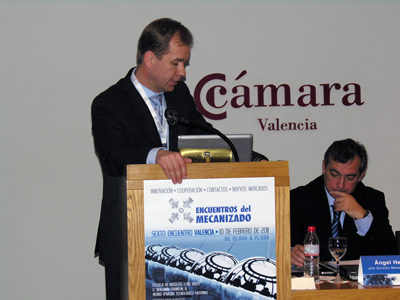
Cooperation, key more than ever
Another important word that sounded many times in the Auditorium of the school of business Lluís Vives is the cooperation of the companies as a way of devising new business strategies, mainly among small enterprises. The first to speak of the need for cooperation was Vicente Lafuente in his inaugural speech of the day, which stated that "SMEs, sometimes by themselves due to their size, have no access to ideas, tools or networks that can enable its growth and its access to international markets." "Inter-firm cooperation must be understood as a process in which we are combining efforts, resources and talent, and currently, driven by the dynamism of the technology and the growing escalation of competitiveness in global markets". Also, Lafuente gave as an example of cooperation between companies the own machining meetings "to which all come to hear, see, share ideas." Later in the market each will defend your company as possible, but we see that we have a competitive advantage in our business within the collective movement. "Our competitors also have the same problems as us and it is in meetings like it where we can give account of the importance of cooperation between companies."
Also, Ramiro Bengochea mentioned cooperation as one of its six key points of competitiveness where the protagonists are the people: "the average turnover of SMEs in machining not reaches one million euros annual." With this billing we have to do things to grow. The employer of the machining is absorbed by the urgent, therefore can not grow. Cooperation is a good way to grow fast. "Integrating technologies it is growing and cooperation is a good way to access projects that we can not access individually." But cooperation can a priori pose difficulties such as lack of understanding or the distrust that must be overcome. In this sense, Bengochea said "companies need cooperation to address challenges of value-added, and cooperation depends on people with empathy, seeking first understand to be understood and raised their relations under the principle of win-win". On the trust between cooperating companies spoke Vicente Lafuente, who said that "without confidence between us, it is impossible to bring to fruition a project of inter-firm cooperation." In this regard, at present, competition is moving company competing against company to groups of companies competing against company groups. Ultimately, cooperation agreements have been taken into account as a tool to increase the competitiveness of the sector of machining subcontracting network and which we must turn to suppliers and customers in our partners, thus integrating the entire value chain and establishing long-term partnership that will enable optimize resources and improve "productivity".
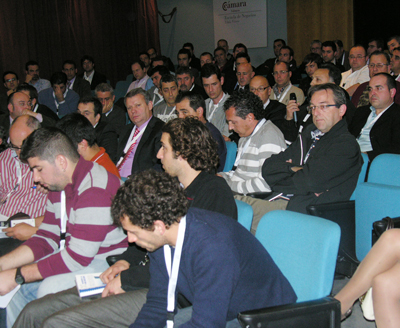
But this theoretically running, at the practical costs a little more to fruition. The proof of this could be seen in the final debate, where attendees could express an opinion. One of them stated that the Valencian machining are unknown among them and that there should be a business association in Femeval that group. On the other hand, a member of the Valencian Association of machinery manufacturers commented that members of business associations have all own business "and, at the end of the day, what you want, rather than thinking about collaborating with someone"It is to get your problems. "We do general assemblies only attended the Executive Committee, 5 people 200 partners". Moreover, mistrust and competition between companies is difficult to eradicate: "Also see competition as our direct competitor or enemy more than someone with whom to collaborate and reach specific agreements." "There is no corporatism among us, in the end we compete for the price of our products".
We must also seek out
New internationalization was raised as a lifeline of many SMEs, given the current situation of the domestic market. "The concept of globalization of the economy makes it necessary to give priority to the process of internationalization of enterprises as a tool for the generation of new and secure opportunities for growth," stated the President of Femeval, and raised several ways to address this process: export, cooperation, the inter-firm partnerships and direct international investment, which is the actual implementation of a company into new markets. "In the case of SMEs, that is the case of the majority of the companies of Spain - continued Lafuente - internationalization usually begins with access to foreign markets with simple formulas such as the export based on the experience and the success of complex formulas that require a higher level of commitment."
"The company since its foundation not flare an international approach, is doomed to quick extinction", according to Vicente Lafuente
"But the situation has resulted in a tendency to rapid internationalization in the field of small and medium-sized enterprises which will lead to new challenges in terms of new models of management and strategies to give companies a competitive advantage." In addition every day are joining many more companies global markets, which is generating a greater competitive pressure. "Thus in the next few years, this trend of rapid internationalization will than be a model of exception to become the norm." "I.e. the company since its foundation not flare an international approach, is doomed to rapid extinction, because birth globally will become a key competence for survival". Not to be, therefore, be afraid to engage in a strategy of internationalization, but to "regard it as a key tool to ensure the survival and the success of the Organization for the future".
And technological innovation, which doesn't lack
In his speech, Vicente Lafuente made mention that innovation can develop with the important support of technology centers "signing agreements either on an individual basis, either in a collective manner." "These agreements can allow increasing the initiatives of research and advanced services, taking full advantage of the resources provided by the Central Administration, as well as the regional authorities". In Valencia, the "scientific arm", as defined its representative in the meetings, Luis Portolés, Femeval is Aimme, Instituto Tecnológico metalworking. Portolés shared with attendees businessmen the latest advances of the Institute in reference to additive manufacturing, which manufactures metal parts through the provision of material, in this case metallurgical dust from 30 to 100 microns, without useful or no preform previous. As he told Portolés, at the international level, the number of machines that incorporate this technology is growing exponentially, primarily because it provides a number of advantages over not additive technologies such as machining: reduction of the delivery date or the time of introduction of the product on the marketespecially for short series, of which greater added value in this kind of technology can be drawn. It allows further customization of the product, with great freedom of design and form, "we will be able to generate geometry that cannot be obtained through other metal forming process". It also allows a reduction in the use of the material factor suitable to implement environmental policies and sustainability; It does not require tools, it is a direct manufacture; and the ease of manufacture highly complex geometries with channels and three-dimensional structures "that will lead to an added value to the piece and industrial diversification of higher value added".
But how it fits the additive manufacturing with machining? will this replace the machining? "The answer is no, because machining provides a number of advantages and has a number of limitations, like any technology of manufacturing." There is not a perfect manufacturing technology. "For example, in the case of machining, one of its main advantages could be accuracy and surface finish."
For Aimme, sharing his knowledge can help "formulate new business or diversifying existing businesses and bring added value to a highly competitive market." "It is interesting to share the results that we are getting today, although they are partial results and so have a lot on the way to go and we go together". Because scientific advances are meaningless if they do not have an application in the industrial fabric.
In this sense, a PhD student of the Polytechnic University of Valencia, in the design and manufacture specialty intervened during the debate asking attendees business support for the implementation of the University in relation to new materials research: "The talent there is to be found where is that in the University." We are innovating in materials for biodegradable composites that one day must be machined and are looking for contributors to put it into practice. "We have much theoretical knowledge, but we lack practice."
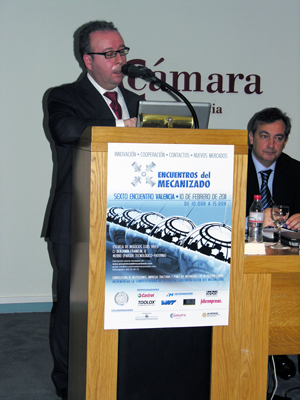
As it is usual in the meetings of the machining, one of the presentations most outstanding, entertaining and better stick the finger in the wound, was which starred José Antonio Gómez Vadillo, of Aleacción and Group Vadillo advisers. The curious title of his presentation, 'Ham and versus Roses' refers to the change experienced by the employer from 2007 to 2011: "If we learn of all the times that we have slid with the SOAP, as can get to eat ham." "Let us learn from the mistake." Gómez Vadillo distinguishes three critical stages in the last 4 years: 'full', 'stand' and 'race'.
In 2007 the entrepreneurship was full: "We won 'pasta' and had 'pasta' in the Bank." In sales, our Department was the fax; "our clients were our friends, and we thought that they were never us to fail."
After the economic crisis, came the phase 'stand', in which the employer had to tough decisions, such as the adjustment of the structure of your company to the new situation of the market (falling average turnover of 50 per cent) and managing a financial position to the limitto maintain current short. "Not thinking circulating for raw material or for investment". The key, according to Gomez Vadillo, is to know the critical point of the situation, where there is no return and thus progress, taking into account the judgment of Albert Einstein: "the crisis is the best blessing that can happen to people and countries"", because the crisis brings progress".
After the critical phase, it is time to 'compete', following a strategy of five 'C': compare, complement, cooperate, accounting and commitment. To compare, you have to go out and visit more productive countries and better managing talent. As to complement, Gómez Vadillo referred to the need for diversification of clients and sectors, because if all the clients of a company are of the same sector and it is ruined, the company also. The third 'C' is to cooperate: "We must join with other machining or do vertical integration with caldererías and engineering." The challenge is to change 'my thing' by the 'all' "." In accounting, business management needs to be robust and the employer must learn to read accounting. Finally the commitment is focused on having a well defined business project: "Not can compromise our people if we do not say what we want and where to go, because this stimulates".


